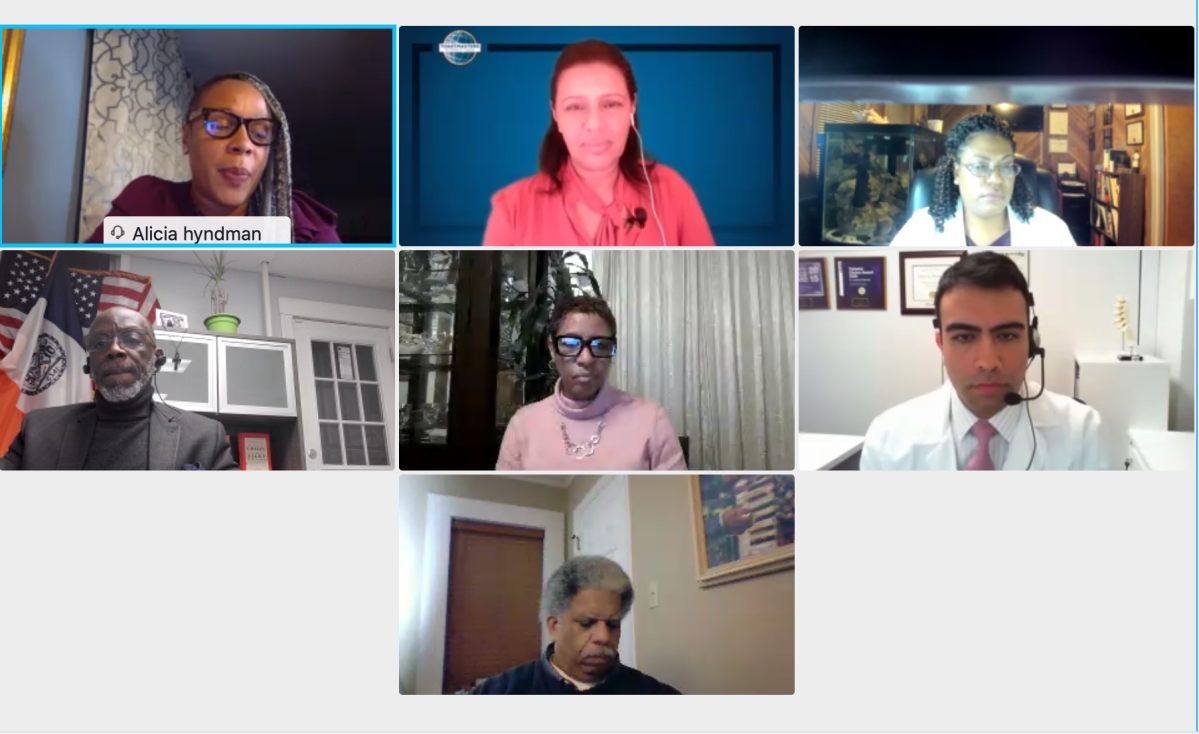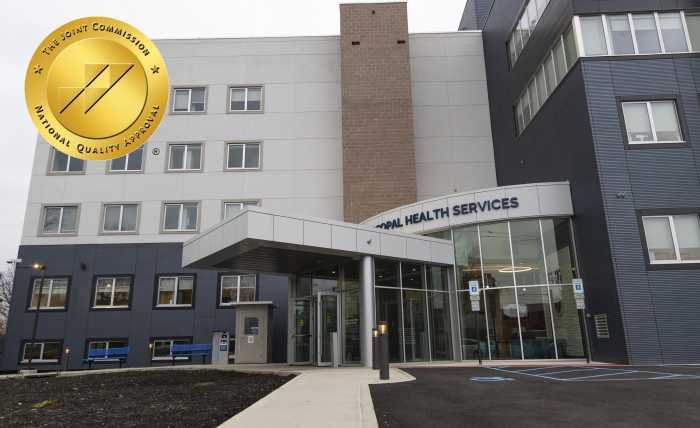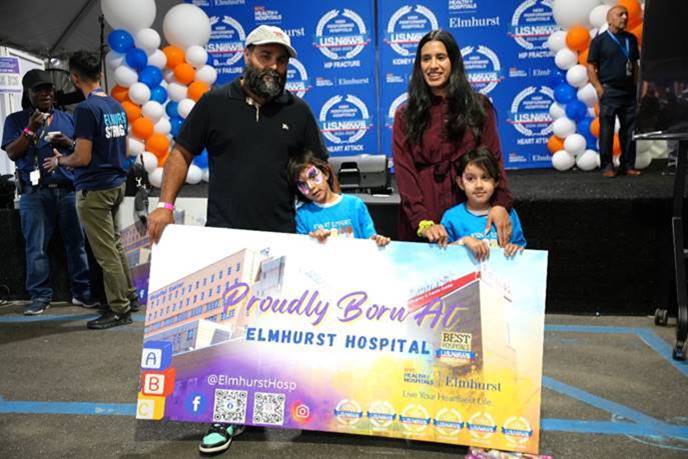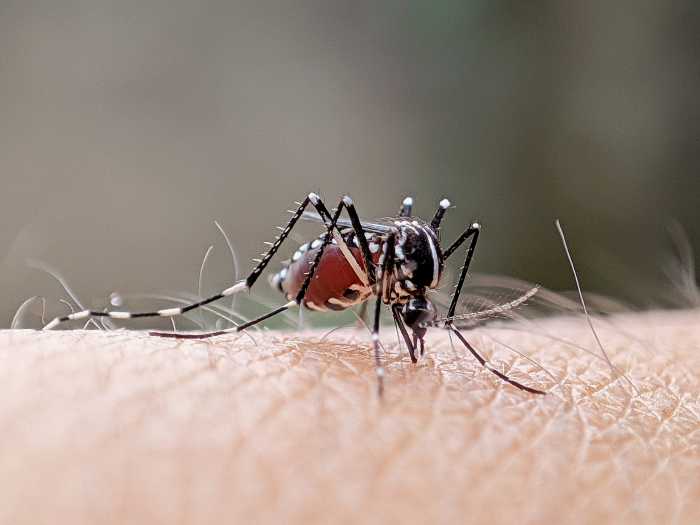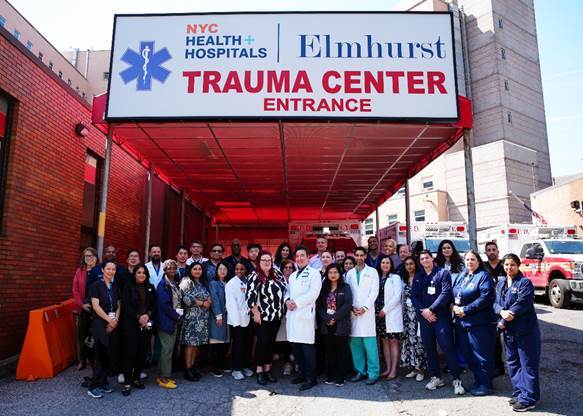Southeast Queens lawmakers on Wednesday, Jan. 27, hosted a virtual town hall with a panel of health experts to provide critical information and address community concerns surrounding the COVID-19 vaccine.
The town hall, hosted by Council Member’s Adrienne Adams and I. Daneek Miller in partnership with their colleagues in the Senate and Assembly, was streamed on Queens Public Television and social media. Panelists discussed the logistics of the vaccine rollout, myths circulating about vaccination, and the reluctance of Black and brown communities to get the vaccine resulting from a history of medical racism, such as the Tuskegee Syphilis Study.
“Communities of color have voiced understandable skepticism about the COVID-19 vaccine and this collaborative town hall was an important way to dispel fears and get the facts on the table,” said Adams, co-chair of the Black, Latino, and Asian Caucus. “We must ensure that residents have the opportunity to ask questions so that myths are dispelled. This is a vital effort for our communities to make informed decisions once the vaccination is available to them.”
As southeast Queens was devastated by the pandemic, Miller said it’s important for the community to be a leader in the vaccination effort.
“We’re also doubling down on our efforts to ensure equitable distribution to communities of color, beginning with legislation in the City Council calling on the city and state to collect and release real-time vaccination data and prioritize hardest-hit areas,” said Miller, who is also co-chair of the Black, Latino, and Asian Caucus.
During the discussion, the panelists — Dr. Torian Easterling of the NYC Department of Health, Dr. Alicia Massop-Flowers of Advanced Multi Medical in southeast Queens, and Dr. Jonathan Rasouli of Cleveland Clinic in Ohio — reassured the community that the vaccine is safe and effective.
The rollout of the Moderna and Pfizer-BionTech vaccines, according to Massop-Flowers, is a gamechanger for the community that will help to drive down the COVID-19 infection rate, not only for healthcare workers and seniors, but once they’re able to vaccinate everyone.
“It’s going to take a lot of education and listening to each other in terms of what our fears are and helping people to feel at ease to get vaccinated,” said Massop-Flowers, a pediatrician, who often gets bombarded with anti-vaccine theories and conspiracy theories.
According to Massop-Flowers, once the vaccine is injected into your system, your body will produce the protein of COVID-19, which will then stimulate the immune system to attack, kill, and produce antibodies against the virus.
“With this type of vaccine, you’re not injecting the particle or virus into your system, and I think that’s what people have to understand,” Massop-Flowers said.
In a new poll released on Jan. 25 by the Association for a Better New York (ABNY), 20 percent of Black/African Americans and 19 percent of Asian, Asian-American, Pacific Islander/other (AAPI) respondents remain unsure if they will accept a COVID-19 vaccination, compared to 10 percent of white New Yorkers.
In terms of racial and geographic concerns, about 18 percent of respondents in Queens and Staten Island remain unsure if they will accept the vaccination. The report revealed that 80 percent of Black respondents and 69 percent of Latino and APPI respondents say that concerns about effectiveness are significant or somewhat significant in shaping their decision about whether or not to get vaccinated.
Rasouli reiterated that the Moderna and Pfizer-BioNtech vaccines are 100 percent backed by science having completed similar testing trials, studies, and ensure equal efficacy in preventing the coronavirus and the new variant strain that has been reported in the United States.
According to Rasouli, the efficacy of the Moderna vaccine trial overall is 94.1 percent; however, in communities of color, the vaccine efficacy was higher than average at 97.5 percent effective. In comparison, Pfizer-BioNTech’s vaccine trial was 100 percent effective in preventing coronavirus infection in the Black population with a 95 percent overall efficacy, Rasouli said.
“There is good science backing these vaccines — it’s safe and they work,” Rasouli said. “You can expect some minor side effects such as swelling or pain on the injection site, but it’s temporary.”
Both the Moderna and the Pfizer-BioNTech vaccines require two shots: a priming dose, followed by a booster shot. The interval between Moderna doses is 28 days; for the Pfizer vaccine, it’s 21 days.
Easterling recommends that people should return to the same location for their second dose to ensure they’re matched up with the manufacturer they received for their first dose. While that may not work for everyone, accommodations will be made.
With concerns about allergic reactions, Flowers indicated that Pfizer and Moderna have listed the active ingredients that are in the vaccines. After getting vaccinated, patients will be monitored for about 15-30 minutes to make sure they don’t suffer an allergic reaction.
However, it’s still important for people to wear a mask and practice social distancing, Massop-Flowers and Rasouli said.
“Once again, you are protected and it’s helping your body develop antibodies, but there were still some people that got the virus,” Rasouli said. “However, if you happen to get sick, it’s highly unlikely to have a severe infection versus if you didn’t get vaccinated.”
While there’s a severe shortage of vaccines and the city is expected to receive more doses, Borough President Donovan Richards is strongly encouraging residents who are eligible to get vaccinated as soon as they can.
“We must ensure we have plenty of vaccination sites all across the borough and are doing culturally competent outreach to overcome any mistrust that may be dissuading some residents from getting the vaccine,” Richards said. “Too many lives have already been lost, so we cannot waste any further time in getting this vaccine, as it becomes available, to those who need it most.”
For a list of all eligible groups, information on scheduling an appointment, and facts about the COVID-19 vaccine, visit the city Department of Health’s website.
New Yorkers who suspect fraud in the vaccine distribution process can now call 833-VAX-SCAM (833-829-7226) toll-free or email the state Department of Health at STOPVAXFRAUD@health.ny.gov. Hotline staff will route complaints to the appropriate investigative agencies to ensure New Yorkers are not being taken advantage of as the state works to vaccinate the entire eligible population.

